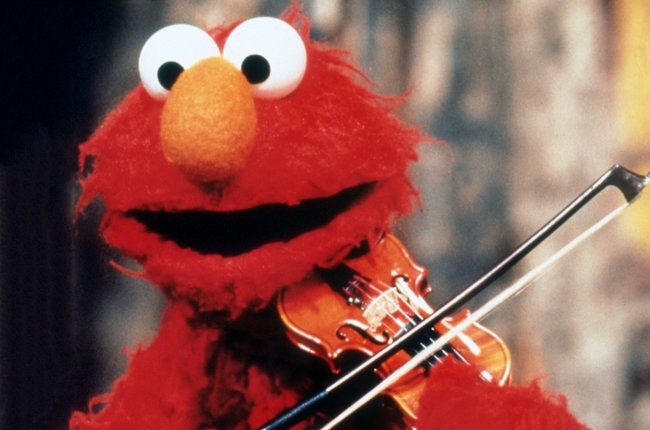When songwriter Tony Geiss died in January 2011 at the age of 86, the New York City native left behind a legacy that included 22 Daytime Emmy Awards across a 36-year career as a writer and composer for the long-running and much-beloved TV show Sesame Street, as well as children's films The Land Before Time and An American Tail. But he also left behind no immediate relatives, with his wife of 60 years, Phyllis Eisen, having died 13 months prior, and thus no obvious beneficiary for an estate that included the songwriting and publishing royalties for songs like "Elmo's World," which aired on every episode of Sesame Street between 1998 and 2009.
Now, six years later, Geiss' intentions for those royalties have become clear: in his will, the songwriter specified that 10 charities, including the New York Public Library, Doctors Without Borders and the American Cancer Society, should benefit from the money coming in from his life's work, which totaled just north of $100,000 in 2016. Last week, his estate announced a partnership with royalties auction company Royalty Exchange to put the earnings from Geiss' credits up for sale in an auction that started at $430,000 and closed on Friday (June 9) at $580,000, a move that both benefits the stipulated charities through a one-time payment and removes a major accounting headache for all sides.
Royalty Exchange is just one of the leading companies that, over the past several years, has made alternative financing for songwriters and artists their main business. Founded in 2011 and led by CEO Matt Smith, Royalty Exchange's auction-based approach allows songwriters and copyright owners access to individual investors interested in acquiring part or all of a song's available revenue streams in an open, transparent marketplace.
"Our goal is for these assets to be traded much like a stock exchange, where the artist can sell a portion of their catalog on a publicly-traded market and the royalties are distributed based upon who the owners are," Smith says. "We want to help artists be able to recognize the real value of the assets that they own, and if it makes financial sense to them, to be able to sell them in a transparent way where they will be able to be paid fairly for the assets."
Geiss' catalog is a particularly noteworthy one, in the fact that its songs still generate so much income despite no longer being part of new episodes of the show. Last year, according to Royalty Exchange's listing, the catalog earned more than $35,000 from two songs -- "Elmo's World" ($25,000) and "Abby's Flying Fairy School" ($10,000) -- in public performance royalties alone, due to syndication of old Sesame Street episodes. And synch royalties -- generated any time the songs are used in a DVD release or subsequent spin-off -- added up to more than $14,000 last year, while other royalties and profits come in from sales and streams as well as profit shares from Geiss' film work.
All told, if annual royalties remain in the region of the $108,500 the catalog brought in last year, the top bidder (identified as David G) would begin to see profits from the $580,000 purchase within six years, with the term of the investment lasting at least 64 years. For Royalty Exchange, Geiss' Sesame Street catalog became the second-largest auction in the company's history, and will put it on track for its first-ever month doing $1 million in auctions.
And for the 10 charities the royalties are set up to benefit, each effectively gets five years worth of royalties up front at once, rather than tracking down one-tenth of each payment in quarterly installments each year; to simplify the math, that's a $58,000 check up front, rather than accounting for $2,700 four times a year for the next half-century.
Geiss' catalog isn't the only one that went through the auction process; in recent months, royalties on catalogs that include songs from artists such as Wiz Khalifa, George Clinton, Britney Spears and Rick Ross all closed in the five figures, while others that include songs by Wale, Kacey Musgraves and the Bee Gees have pushed into the six figures. To date, the largest auction in Royalty Exchange's history was for both the royalties and copyright to the master recording of Matt White's 2007 song "Love," which closed at $900,000 last May after starting with opening bids at $600,000.








